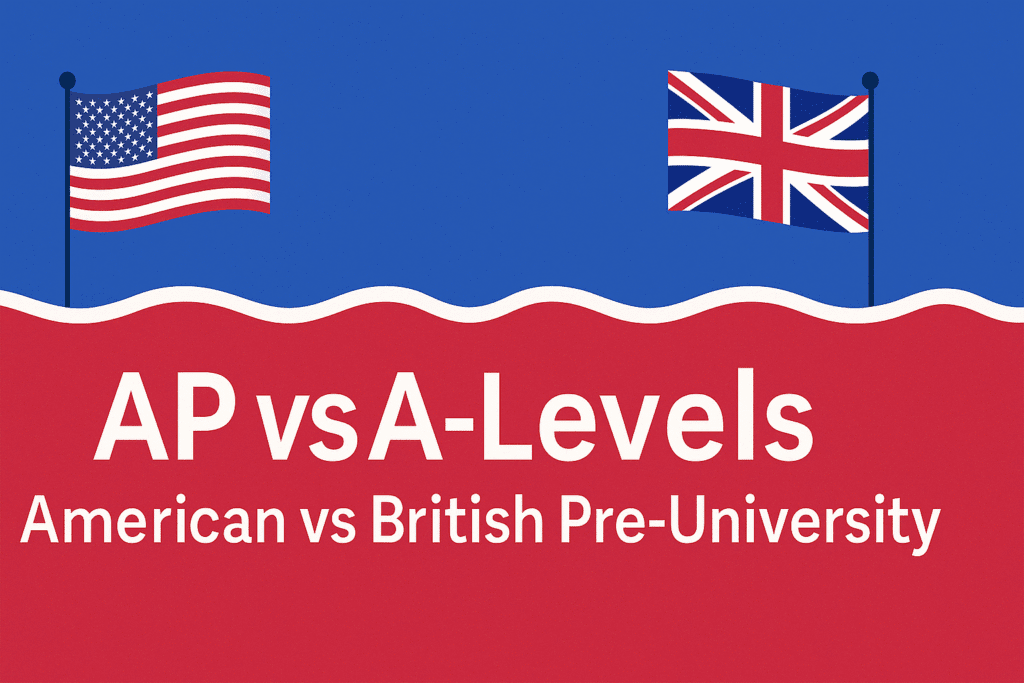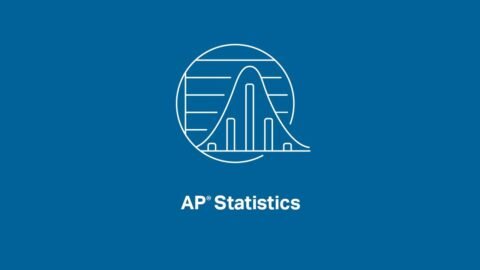AP vs A-Levels: American vs British Pre-University – What International Students Should Know
“Choosing between AP and A-Levels isn’t about which is better — it’s about which aligns with your academic journey.” – Olivia Hart, College Admissions Consultant
🎯 Introduction: When Your Future Spans Oceans
So you’re deciding between Advanced Placement (AP) and A-Levels — or trying to figure out how they compare for college admissions. Maybe you’re in Dubai, Singapore, or London and looking at schools in the U.S. and the UK. Sound familiar?
You’re not alone. Thousands of international students find themselves caught in the tug-of-war between American and British pre-university systems, wondering which path leads to more opportunity.
Let’s unpack this head-on. From course structure to global recognition, here’s what you (and your parents) need to know to make the best choice.
🧠 What Are AP and A-Levels?
Advanced Placement (AP) – The American Way
Developed by: College Board (USA)
Structure: Take individual AP courses (e.g., AP Calculus, AP Biology)
Scoring: Exams scored from 1 to 5
Flexibility: Students choose how many APs to take
Curriculum Style: Broad, fast-paced, often lecture- and textbook-based
A-Levels – The British Classic
Developed by: Cambridge International, Edexcel, OCR (UK)
Structure: Students typically take 3–4 subjects over two years
Assessment: Mix of coursework and exams (AS + A2)
Depth Over Breadth: Narrow focus on fewer subjects
Curriculum Style: Analytical, essay-based, research-heavy
📚 Key Differences at a Glance
| Feature | AP (Advanced Placement) | A-Levels |
|---|---|---|
| Origin | USA | UK |
| Duration | 1 year (per course) | 2 years (per subject) |
| Subject Load | Flexible (1–10+ APs) | Typically 3–4 A-Levels |
| Assessment Style | One final standardized exam | Modular exams + coursework |
| Teaching Approach | Fast-paced, independent | In-depth, analytical |
| Recognition | Top US & Canadian universities | Top UK, EU, AUS, and more |
✅ TL;DR: AP = Flexibility & breadth. A-Levels = Specialization & depth.
🌍 Recognition: Will My Qualification Travel?
US Universities on A-Levels
A-Levels are highly respected by U.S. universities, often compared to APs or even first-year college courses.
Top U.S. schools like Harvard, MIT, and Stanford recognize A-Levels and may award credit
A strong A-Level performance can lead to advanced standing
“An A* in A-Level Physics is often seen as equivalent to a 5 in AP Physics C.” – US College Board Advisor
UK Universities on APs
UK universities accept APs, but they often want at least 3 AP scores of 4 or 5 — and may require SAT/ACT as well.
Universities like Oxford and LSE provide AP-specific admissions criteria
APs work best when paired with a rigorous U.S. high school diploma or IB
✅ Tip: Check each university’s entry requirements. Sites like UCAS and College Board have detailed matrices.
🎓 Which Is More Challenging?
It depends on your learning style.
AP Might Feel Harder If:
You’re juggling many subjects at once
You prefer slower, deeper exploration
You struggle with time-limited, high-pressure exams
A-Levels Might Feel Harder If:
You enjoy variety and exploration
You’re not sure what to specialize in yet
You want more continuous assessment and less final-exam weight
“APs are like sprints. A-Levels are marathons. Both require training — just different kinds.”
🧩 What Subjects Do You Need?
For STEM (Engineering, Computer Science):
AP: Calculus AB/BC, Physics C, Chemistry
A-Level: Maths, Further Maths, Physics
For Humanities (Law, Politics, Literature):
AP: English Literature, US Government, World History
A-Level: English Literature, History, Economics, Politics
For Business/Finance:
AP: Micro/Macro Economics, Statistics, AP Calculus
A-Level: Economics, Business Studies, Maths
🧘♂️ Student Voices: Real World, Real Choices
Zara (Dubai – AP student now at Oxford)
“I took 5 APs and SATs. It was tough, but I got into Oxford’s PPE program. The admissions office wanted to see depth in my essay responses.”
Arjun (Delhi – A-Level student now at NYU)
“A-Levels taught me how to write with clarity. NYU gave me credit for Economics and Maths, which saved me a full semester.”
📈 Making the Right Decision: 4 Questions to Ask Yourself
Where do you want to study after school?
What subjects excite you — and how deeply?
Do you prefer variety or depth in your learning?
Do you have strong time-management skills for multiple APs or focus for A-Levels?
🧭 Final Thoughts: It’s About Fit, Not Fame
Both AP and A-Levels are respected, rigorous pathways to top universities worldwide. The question isn’t which is better, but which is better for you.
If you’re aiming at U.S. colleges, a strong AP profile makes sense. For UK or EU schools, A-Levels are often the gold standard. But don’t discount the hybrid routes — many students succeed with a mix.
“Your pre-university qualification doesn’t define your future. How you learn and grow does.”
❓ People Also Ask (FAQs):
Q1. Are A-Levels accepted in the US?
A: Yes, A-Levels are highly respected by U.S. universities and can lead to college credit or advanced placement.
Q2. Are AP courses accepted in the UK?
A: UK universities accept APs, typically requiring 3 scores of 4 or 5, often alongside SAT/ACT.
Q3. Which is harder: AP or A-Level?
A: It depends. AP offers breadth and flexibility, while A-Levels go deeper into fewer subjects. Difficulty depends on personal strengths.
Q4. Can I combine AP and A-Levels?
A: In rare cases, yes — especially in international schools with flexible curricula. But managing both can be very demanding.
Still not sure? Check out our admissions guides and curriculum comparisons on HeLovesMath.com. Wherever you’re going, we’ll help you get there. 🌍🎓


